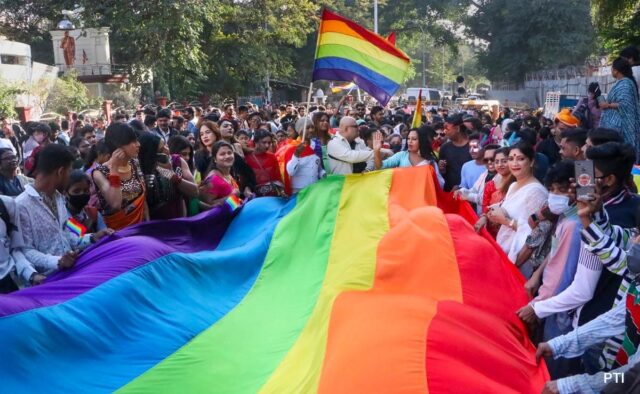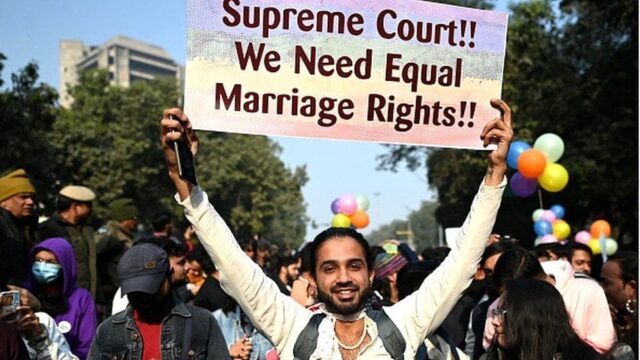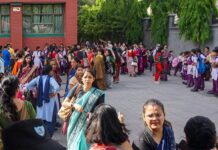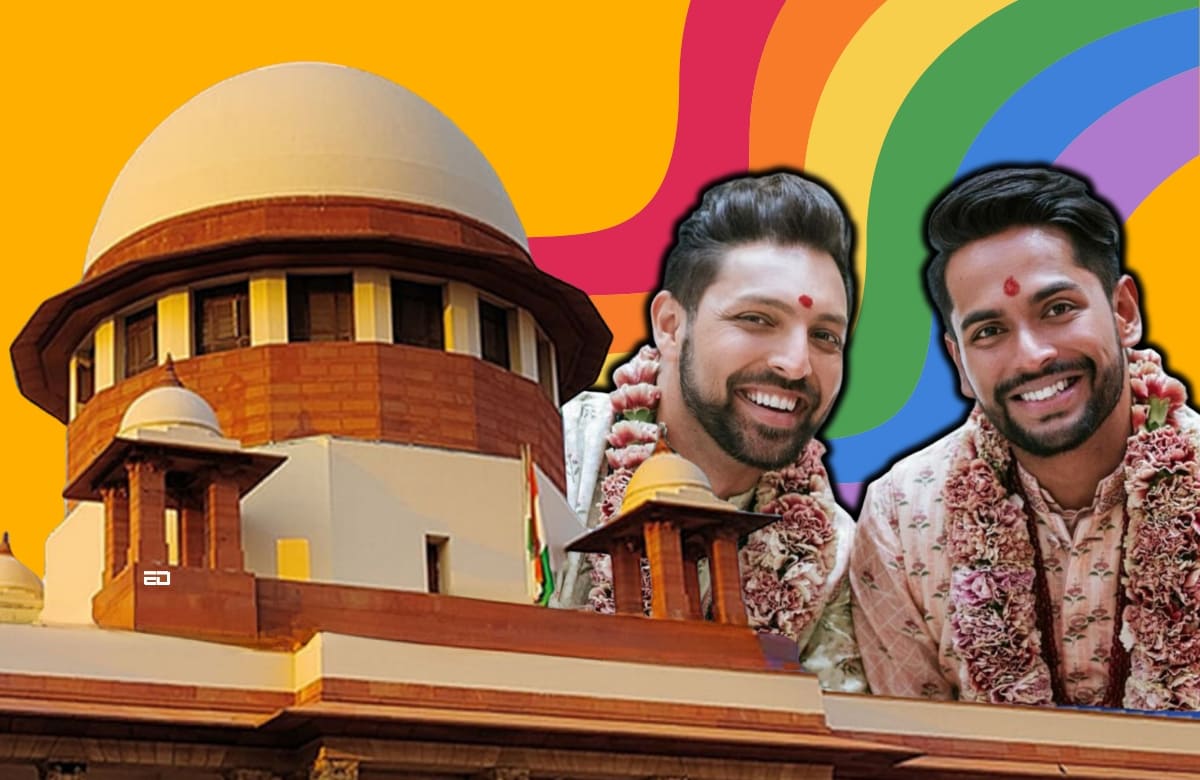In a decision by a group of five judges in the Supreme Court, they said that there is no law that makes it a basic right for same-sex couples to marry, however, they did recognize their union. They also didn’t change the Special Marriage Act from 1954 to allow same-sex marriages to be legal. Instead, they said it’s up to the Parliament to decide about same-sex marriages.
This decision came as a shock to LGBTQ+ people in India who wanted the same rights for marriage. The Supreme Court made this decision on 17 October after looking at 21 requests from same-sex couples and activists who wanted the law to allow same-sex marriages.
Now that the Supreme Court doesn’t recognize same-sex marriage, we need to think about what this means for same-sex couples. We would figure out what rights they do have, if they can adopt children, and how long it might be before they can get married.

Let’s find out!
Also Read: How Are Same-Sex Marriages Happening In India Even When They Aren’t Legal Yet?
Marriage Not Recognised, But It Did Recognise Certain Rights
Although the Supreme Court, led by the Chief Justice of India (CJI) DY Chandrachud, couldn’t make same-sex marriage legal, it did provide a list of rights for LGBTQ+ couples.
The Supreme Court told the government to make sure LGBTQ+ couples are treated fairly and not discriminated against. They also asked the government to ensure that LGBTQ+ people have the same access to goods and services as everyone else.
The Court added that the public should be educated about LGBTQ+ rights, and there should be a helpline for LGBTQ+ people. Safe places, called “Garima Grih,” should be created for LGBTQ+ couples.
It was also emphasized that intersex children shouldn’t be forced to have surgeries, and no one should be made to undergo hormone therapy. The police were instructed not to harass or send LGBTQ+ individuals back to their original families.
CJI Chandrachud mentioned that marriage shouldn’t be seen as something that can never change. However, he said the Supreme Court can’t change the Special Marriage Act or its wording. He believes it’s up to the Parliament to decide on this matter.

Can Queer Couples Adopt?
Chief Justice DY Chandrachud, when delivering the decision on same-sex marriages, mentioned that the judges had both things in common and things they didn’t agree on. He explained that the disagreement was about how much the court should get involved.
CJI Chandrachud said, “The law cannot make an assumption about good and bad parenting and it perpetuates a stereotype that only heterosexuals can be good parents.”
The CJI added that regulation 5(3) of CARA – a government agency that comes under the Union Ministry of Women and Child Development and lays down the rules for adopting children in India – “discriminates between partners in atypical unions.”
Significantly, the CARA regulation 5(3) states: “No child shall be given in adoption to a couple unless they have at least two years of stable marital relationship except in the cases of relative or step-parent adoption.”
“There is no material on record to prove that only a married heterosexual couple can provide stability to a child,” Justice Chandrachud added. Chandrachud ruled that unmarried couples, including gay couples, could jointly adopt.
The CJI ruled that Regulation 5(3) of the CARA Regulations, insofar as it prohibited unmarried and queer couples from adopting, violated Article 15 of the Constitution. The CJI thus struck down CARA.
Justice Chandrachud and Justice SK Kaul agreed that gay and unmarried couples should be allowed to adopt, and they thought that the rule was unfair. But the other three judges, Justices Ravindra Bhat, Hima Kohli, and PS Narasimha, didn’t think so.
What Now Lies Ahead For Queer Couples?
The Special Marriage Act of 1954 was made to allow people from different religions to marry each other. But it currently only lets a man marry a woman. The court said that not letting same-sex couples marry is not against the law.
They added that getting married is not a basic right, even though some judges thought it affects other important rights like freedom of speech, freedom to move around, and having a life with respect and freedom.
The Supreme Court didn’t want to change the Special Marriage Act or add new words to it because that’s the job of the government. The judges on the bench, including Justices S K Kaul, S Ravindra Bhat, Hima Kohli, and PS Narasimha, also didn’t want to make changes to the Indian Succession Act or Hindu Succession Act.
“If the Special Marriage Act is struck down, it will take the country to pre-Independence era. If the court takes the second approach and reads words into the SMA, it will be taking up the role of legislature,” CJI Chandrachud stated.
So, whether same-sex marriage becomes legal in India in the future now relies on the government to change marriage laws. Earlier, the government suggested forming a group to address the issues faced by same-sex couples, but it wouldn’t call their unions “marriages.”
This decision allows LGBTQ+ people to have relationships without worrying about legal consequences. It also raises the possibility of the government granting more rights to same-sex couples. The special committee promised by the government will examine various matters, like inheritance, financial, and medical rights.
Image Credits: Google Images
Feature image designed by Saudamini Seth
Sources: Indian Express, Hindustan Times, Firstpost
Find the blogger: Palak Dogra
This post is tagged under: DY Chandrachud, Supreme Court, Supreme Court of India, same sex marriage in india, same sex marriage in india supreme court, same sex marriage, same sex marriage supreme court, same sex marriage plea, same sex marriage debate, same sex marriage india
Disclaimer: We do not hold any right, copyright over any of the images used, these have been taken from Google. In case of credits or removal, the owner may kindly mail us.

































